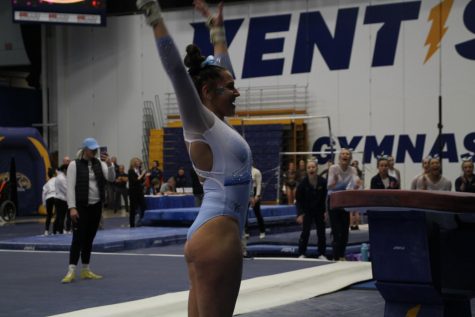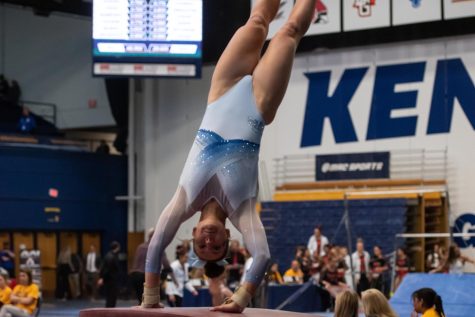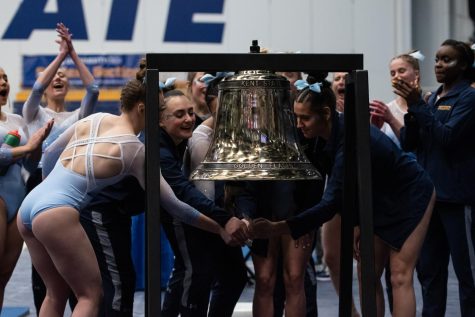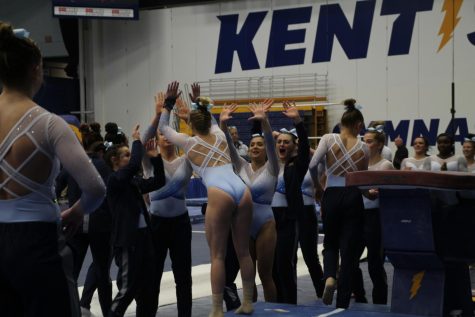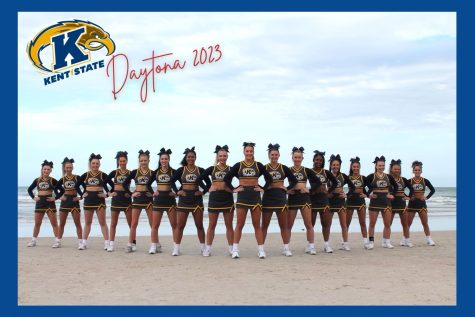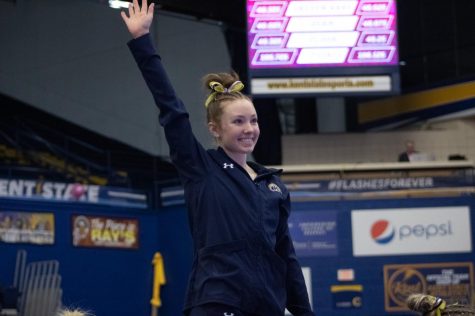Student who received liver transplant as a child now works to recruit donors
April 30, 2008
It’s a serious decision, she says, but someone’s ‘last gesture of charity’ could help 50 people
In Ohio alone, almost 2,500 people are waiting for an organ transplant. Unfortunately, according to DonateLifeOhio.org, the lack of donors is great and about 17 Americans die each day waiting for a transplant.
Organ donation is a personal topic for many students, including Tessa Farese, junior business management major who was born with Biliary Atresia, a condition that left her liver unable to function properly.
When she was 2 months old, Farese’s mother found blood in her diaper and knew something was terribly wrong. Doctors tried to mend the baby’s liver surgically, and Farese underwent three surgeries by her first birthday. These procedures did not solve Farese’s problem, and she was put on a waiting list for a liver transplant.
Six years later, in June 1991, Farese’s condition worsened and she was bumped up to the “urgent” donation list. The night of Oct. 13, Farese’s parents received the call they’d been praying for. A boy about their daughter’s age had died and his parents were donating his organs – including his liver. The family immediately drove to the Cleveland Clinic, and 6-year-old Farese went into surgery the next morning.
After 11 hours in the operating room and 44 days in recovery, Farese returned home with a new liver. Though she was weak and very susceptible to disease and infection, Farese tried to live a normal life. She played sports and took lessons in gymnastics and Taekwondo. She has also been part of an Austrian folk dancing squad for 15 years and continues to remain active.
Farese, now 22, said she still gets sick very easily, due to the anti-rejection drugs she takes to ensure her body does not attack her liver. When doctors tried to take her off the drugs earlier this year, Farese’s body reacted adversely and she was diagnosed with Chronic Fatigue Syndrome. Now back on the anti-rejection medication, Farese said her immune system remains fragile.
“I don’t want to say I’m weak but I get really run down,” she said. “There are more days out of the year I feel sick than not, but it’s way better than the alternative. I can deal.”
Farese said she has trouble keeping a job because of her frequent illnesses, but she knows she is very lucky to be doing so well.
“I haven’t had any serious problems – knock on wood – I think because I was so young. The liver grew with me,” she said.
Farese realizes the impact organ donation had on her life was immeasurable, and she is active in promoting donor recruitment. Farese volunteers for LifeBanc, Northeastern Ohio’s organ procurement organization. She said she tells her story at schools and events, and has attended events such as Malone College’s “Hoops 4 Healing” tournament and the MAC tournament half-time show.
She wants to make people aware of the need for organ donors and the impact one person can have, she said.
Farese said a single organ or tissue donor can change dozens of lives through bone, skin, ligament and cornea transplants, among other tissues and organs.
“I guess it’s kind of gross, but you could change 50 people’s lives,” Farese said. “I mean, you can give someone sight.”
Farese also said there are many misconceptions about becoming an organ donor. Some think doctors might not work as hard to save the life of a person who is a donor because there is such a need for organs. However, Farese said doctors do not check to see if a patient is an organ donor until after he or she is pronounced dead.
Religious opposition may also affect students’ decisions to become donors, but Farese said all major religions actually support organ and tissue donation, calling it a “last gesture of charity.” She also said that organ donation does not ruin open-casket funerals as some may think.
Farese said she thinks the only reason someone should not become an organ donor would be personal preference, but she doesn’t understand why anyone would oppose.
“If you have the chance to save someone’s life, why wouldn’t you?”
Contact student health reporter Amanda Hayes at [email protected].












